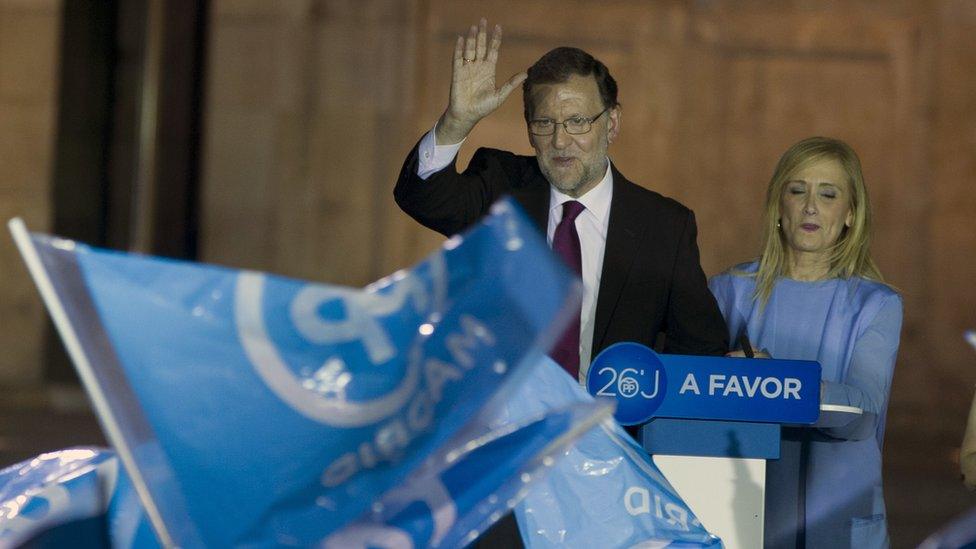Spain election: Podemos' Ikea-style appeal to young voters
- Published

Podemos has an eyecatching Ikea-style manifesto
In a famous piece written in 1936, the German intellectual Walter Benjamin warned about the 'aestheticisation of politics', as seen in Nazi and Fascist mass propaganda rallies of the time.
Now, almost a century later, his observation is truer than ever. In fact, politics seem to be entering into a post-modern age of irony and self-reflection.
The final goal, however, remains the same: capturing power. Not seducing the masses, but appealing to a fragmented electorate that oscillates between apathy and indignation.
In today's saturated media environment, new ways of catching public attention are called for.
So how about presenting your economic manifesto in the form of an Ikea catalogue?
That is just what Podemos, the insurgent Spanish party that came from nowhere to third position in last December's general election, has just done.
To the delight of Spanish media outlets and social media, Podemos (meaning 'We Can' in Spanish) delivered an economic programme that mimics the Ikea catalogue, a familiar item in many Western households.
In it, prominent members of the party are featured in Ikea-decorated rooms, external - seemingly with the approval of the firm, which has refused so far to comment - while presenting a rather traditional tax-and-spend list of economic proposals.
Although most commentators have pointed out that the numbers do not add up, this does not seem to bother either the party or voters.
A few days ago, Inigo Errejon, usually pictured as the most brainy member of the party, said frankly that campaigns must be sexy. Voters seem to agree, as the polls suggest Podemos will be the most voted for party among people under 40.

Podemos leader Pablo Iglesias is trying to soften his party's hard-left image
Using Ikea as an inspiration brings to mind the practice of 'cultural jamming' - giving capitalist icons and messages a subversive meaning by placing them in different contexts or using them for unexpected ends.
After all, Podemos blends traditional Socialist ideas with modern populism. And if candidates are sold as brands in our times, why not use brands themselves to sell the candidates?
Ikea seems like the natural choice: the firm is full of meaning for young voters who have led unstable lives in our fluid age.
At the same time, Podemos is trying to dispel the impression that it is a hard-left party, after forming a coalition ahead of the election with the former Communist Party; Ikea stands for the success of Nordic social democracy.
Tellingly, Podemos leader Pablo Iglesias has just claimed that Marx and Engels were Social Democrats, enraging a weakened Socialist Party for which Podemos represents an existential threat.
A lecturer in politics, Mr Iglesias made no mistake - he was forcing others to talk about him, thus dominating the stage. In that, he recalls another successful populist: US Republican presidential candidate Donald Trump.
After all, populism is a political style rather than an ideology. And in matters of style, the Ikea trick confirms that Podemos is way ahead of its rivals.

- Published10 June 2016

- Published21 August 2023

- Published24 February 2016

- Published21 December 2015
